A Basic Guide
Parenting a neurodivergent child can be a challenge.
I understand. I do it everyday.
Children with disabilities and disorders can require special support for even the most basic daily tasks and routines. Staying calm, getting enough rest, managing their mood and focusing on the task at hand is not something that comes easily to our neurodiverse children.
Deficits in these areas combine to create a perfect storm of stress, overload and overwhelm – resulting in an inevitable meltdown.
This is a daily reality for many children and their families.
Support comes to us in many forms – dedicated therapists who teach our children (and us) strategies to cope, supplements and dietary intervention that do their best to assist struggling little bodies, plus I also use essential oils.
Essential oils can be used for a wide range of emotional and physical wellness applications, but I want to stress that essential oils are not meant to be a replacement for medical drugs and/or professional therapy.
The reason I use them is simply this: my kids do better with them than without them. And with all the struggles our neurodiverse children face on a daily basis, I am up for anything that can help them out!
I choose to use doTERRA essential oils and blends for their guaranteed purity and potency, which I believe is an important consideration when choosing an essential oil company.
In this practical guide, you’re going to learn how essential oils can support neurodivergent people, plus the basics of essential oils and how to use them.
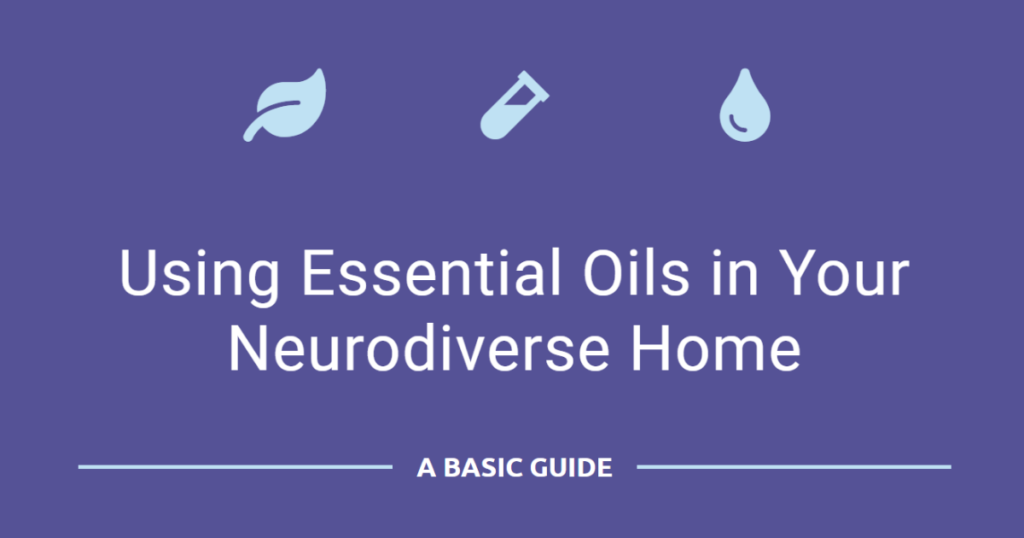
Guide Chapters
CHAPTER ONE – A Basic Introduction to Essential Oils
CHAPTER TWO – How Essential Oils Support Neurodivergent People
CHAPTER THREE – The Essential Oils to Use and Why
CHAPTER FOUR – Easy Places on the Body to Apply Essential Oils to Neurodiverse Children
CHAPTER FIVE – How to Purchase Essential Oils + What to Buy
CHAPTER ONE – A Basic Introduction to Essential Oils
What are essential oils and how do they work?
Essential oils are compounds that contain the ‘essence’ of the plant they come from. They have the ability to quickly transform from their liquid state to a gas state at room temperature. This is why their scent is usually the first thing you notice about them.
Essential oils are quickly absorbed by the smell receptors in the nose, which have a direct link to the limbic system in the brain by way of the olfactory nerve. The limbic system is part of the brain that supports a variety of functions including smell, emotions, behaviour, and memory.
From here, the unique chemical composition of an essential oil has the ability to do a number of things including calm, soothe, energise, uplift, warm or even cool a person.
How do you use essential oils?
There are three main ways to use essential oils:
1. Aromatically
The aromatic use of essential oils consists of benefiting from the natural properties of the oils by way of breathing in the aroma.
While topical and internal application require the body to come in contact with the oil, aromatic application merely requires the essential oil to pass through the nose in order to offer the benefits.
Aromatic use is typically achieved by diffusing or inhaling essential oils directly.
You can read more about the aromatic use of essential oils in doTERRA’s Aromatic Use of Essential Oils eBook.
2. Topically
Topical use is the direct application of an essential oil to the skin or the body. This is usually done by mixing the essential oil with a carrier oil or lotion, and then rubbing it on to the skin.
While aromatic use allows users to enjoy essential oils through the air, and flavouring use consists of consuming essential oils, topical application is a simple way to experience the power of essential oils— providing significant benefits for the skin and entire body.
You can read more about the topical use of essential oils in doTERRA’s Topical Use of Essential Oils eBook.
3. Flavouring use
Cooking with essential oils is a fun, simple way to make creative meals, or to make your favourite meals a bit more interesting.
How you use essential oils for cooking will depend on your own personal taste, what kind of food you are making, and which oil you are using.
By following a few simple guidelines*, you can easily enjoy the benefits of cooking with essential oils.
* Not all essential oils can be used this way. Please check the label of your essential oil to ensure it is suitable for flavouring use.
You can read more about the topical use of essential oils in doTERRA’s Cooking With Essential Oils eBook.
Essential Oil Benefits
There are many ways essential oils can support you and your neurodiverse home. When discussing the benefits of individual essential oils, I find it helpful to categorise them by the type of benefits they offer.
✅ Health and wellness
Essential oils traditionally used in herbal medicine to maintain and support general health and wellbeing.
✅ Calming and Grounding
Essential oils that exhibit calming and grounding properties.
✅ Rest and Relaxation
Essential oils known to support a good night’s sleep.
✅ Soothing and Beautifying
Essential oils that are soothing and beautifying to the skin, hair and teeth.
✅ Staying Focussed
Essential oils that invigorate your mind and restore your focus.
✅ Low-Tox Cleaning
Essential oils with natural cleansing and purifying properties.
✅ Mood Management
Essential oils that may reduce uneasy feelings, energise and uplift, or promote a positive outlook.
CHAPTER TWO – How Essential Oils Support Neurodivergent People
The essential oil support categories for neurodiversity
The first question most people have when they hear the idea of using essential oils in their neurodiverse home is “How are essential oils going to help me?”
This is a very broad question, as there are hundreds of essential oils and essential oil blends all with the potential to help people in different ways.
So every time I see an article titled ‘Essential Oils for Autism’ or ‘Essential Oils for ADHD’ I inwardly cringe because, unfortunately, it’s just not that simple.
In the previous chapter we learnt about the benefits of essential oils and the seven ‘support categories’ I created to classify essential oils according to the support they offer.
I created these support categories to give you a better idea about what benefits you should expect when using essential oils in your neurodiverse home.
Out of these seven categories I believe there are four key essential oil support categories for neurodiversity based on several key supports neurodivergent people often seek.
They are:
✅ Calming and Grounding
Essential oils that exhibit calming and grounding properties.
✅ Rest and Relaxation
Essential oils known to support a good night’s sleep.
✅ Mood Management
Essential oils that may reduce uneasy feelings, energise and uplift, or promote a positive outlook.
✅ Staying Focussed
Essential oils that invigorate your mind and restore your focus.
You will see these categories displayed throughout this guide to help you identify the essential oils and blends that will offer you the best support for your neurodiverse home.
Any essential oil or blends may belong to one or more category and there are even essential oils I like to call ‘super supports’ because they offer support from all four categories.
How do essential oils support the body?
An essential oil’s supportive benefits are the result of a number of factors including its chemical composition. By their chemical make-up, we can classify essential oils as having either calming or uplifting effects on the body.
Each essential oil group has specific constituent profiles known to elicit distinct emotional responses.

Floral essential oils are composed primarily of monoterpene alcohols, which exhibit toning and calming properties.
Tree, herb, and grass essential oils are rich in sesquiterpenes, esters, and oxides, which are grounding, soothing, and renewing.
Mint essential oils have high concentrations of ketones, which are energizing and uplifting.
Citrus oils are generally composed of limonene and beta-pinene, monoterpenes with strong uplifting characteristics.
Phenols, the primary chemical constituents of many spice essential oils, are recognized for their warming properties.
These properties and characteristics enable essential oils to offer excellent support with:
- the calming and grounding of emotions
- resting, relaxing and getting a good night’s sleep
- maintaining a positive mood and attitude
- restoring and maintaining focus.
Consider using essential oils in your neurodiverse home if your or your child’s challenges fall into any of these categories.

If you want to delve into the nitty-gritty science of essential oils then consider reading the doTERRA Essential Oils Chemistry Handbook.
Now that you know the four key support categories of essential oils for neurodiversity, let’s take a look which essential oils belong to which categories.
CHAPTER THREE – The Essential Oils to Use and Why
Now we know the four key essential oil support categories for neurodiversity, let’s examine which essential oils belong to these categories.
These are the essential oils that can best support you and your neurodiverse home.
The Ten Most Supportive Essential Oils
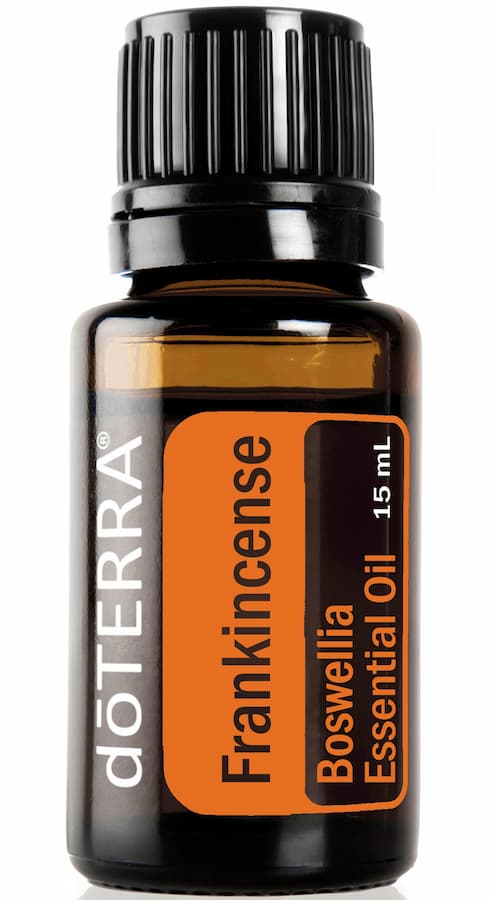
FRANKINCENSE ESSENTIAL OIL
Renowned as one of the most prized and precious essential oils, Frankincense has extraordinary benefits. Frankincense promotes feelings of peace, relaxation, satisfaction, and overall spiritual and emotional wellness. Massage on the bottoms of feet to promote feelings of relaxation and to balance mood.
SUPPORT CATEGORIES: ✅Calming and Grounding ✅Rest and Relaxation ✅Mood Management ✅Staying Focussed
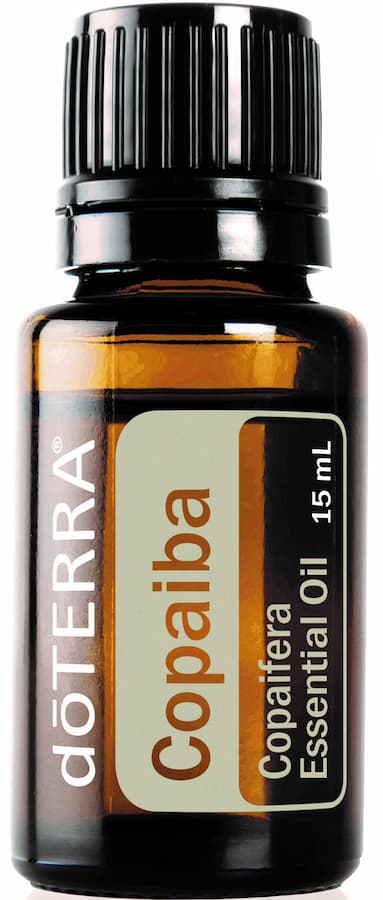
COPAIBA ESSENTIAL OIL
Since the 16th century, Copaiba essential oil has been utilised in traditional health practices by the natives of Brazil. Copaiba is soothing and calming to the emotions, and its unique chemical components make it an incredibly supportive essential oil. Diffuse aromatically to create a calming and restful atmosphere.
SUPPORT CATEGORIES: ✅Calming and Grounding ✅Rest and Relaxation ✅Mood Management ✅Staying Focussed
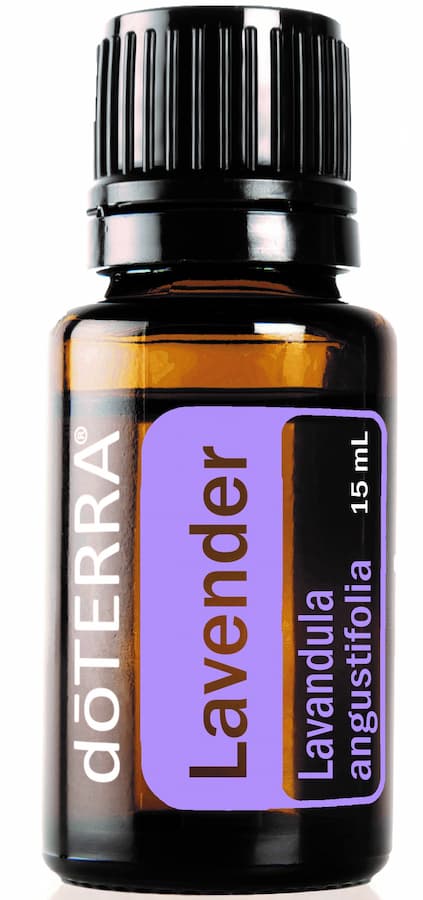
LAVENDER ESSENTIAL OIL
Lavender’s calming and relaxing properties are one of its most notable attributes. Add to bath water to soak away stress or apply to the temples and the back of the neck. Add a few drops of Lavender to pillows, bedding, or bottoms of feet to relax and prepare for a restful night’s sleep.
SUPPORT CATEGORIES: ✅Calming and Grounding ✅Rest and Relaxation ✅Mood Management
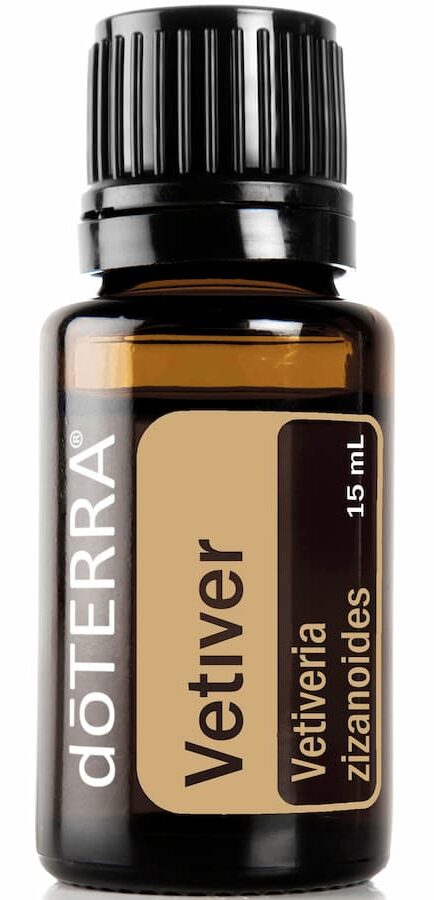
VETIVER ESSENTIAL OIL
This oil is well known for its calming and grounding effect on emotions. Vetiver has a rich, earthy, complex aroma and is ideal for rubbing on the feet before bedtime to promote a sense of relaxation. It is also excellent in baths or applied to reflex points.
SUPPORT CATEGORIES: ✅Calming and Grounding ✅Rest and Relaxation ✅Mood Management
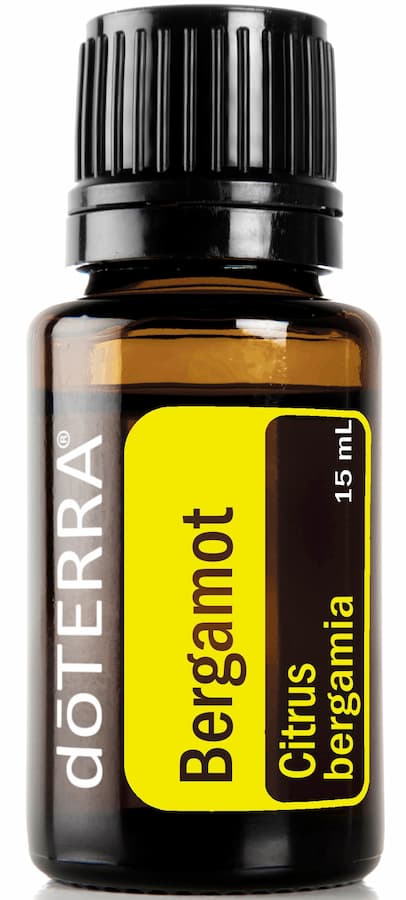
BERGAMOT ESSENTIAL OIL
Bergamot is unique among citrus oils due to its ability to be both calming and uplifting. This makes it ideal for use both at bedtime, and during the day at school, work or home to relieve symptoms of stress and anxiety. Apply to the skin while showering to experience its calming aroma.
SUPPORT CATEGORIES: ✅Calming and Grounding ✅Rest and Relaxation ✅Mood Management
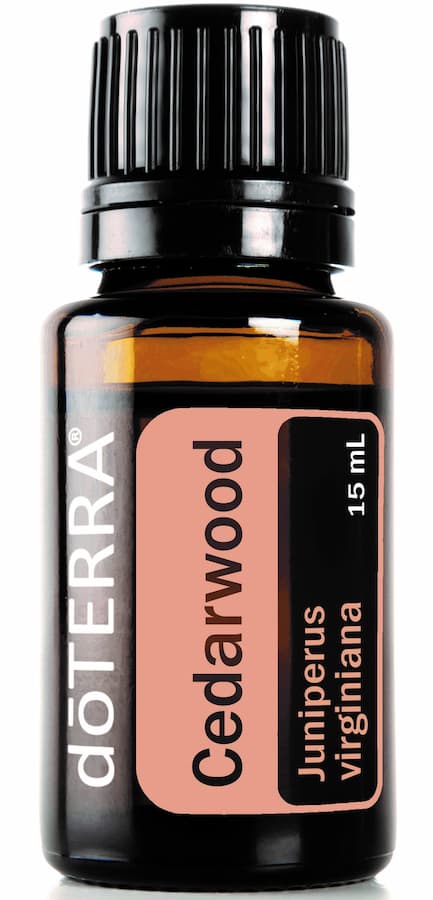
CEDARWOOD ESSENTIAL OIL
Cedarwood has a grounding aroma that evokes feelings of spiritual and emotional wellbeing. Additionally, Cedarwood is frequently used in massage therapy to relax and soothe the soul and body. After a difficult day, diffuse to create a relaxing environment.
SUPPORT CATEGORIES: ✅Calming and Grounding ✅Rest and Relaxation ✅Mood Management

NEROLI ESSENTIAL OIL
Much research has been conducted regarding the aroma of Neroli essential oil. It’s known for its calming uplifting aroma, which may instil relaxation, and promote spiritual and emotional well-being. Neroli enables a sense of calm and ease, and its calming, lulling aroma encourages relaxation.
SUPPORT CATEGORIES: ✅Calming and Grounding ✅Rest and Relaxation ✅Mood Management
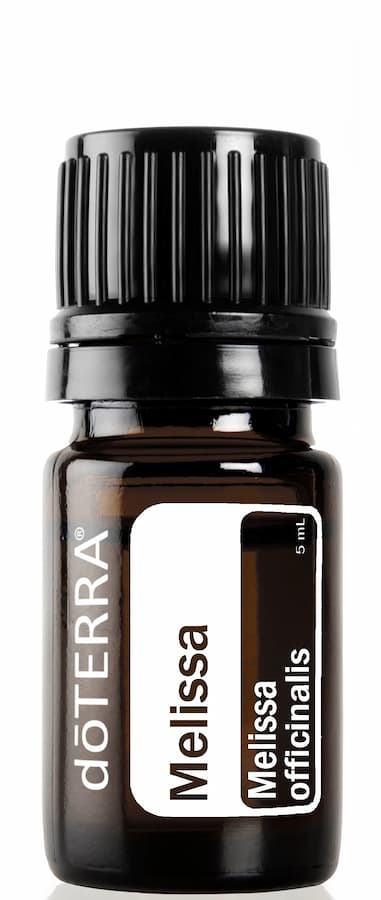
MELISSA ESSENTIAL OIL
Because of its positive uplifting scent, Melissa has long been used in situations of tension to help calm feelings and promote a sense of centeredness and balance. It
also promotes feelings of relaxation, and is beneficial to emotional and spiritual wellbeing.
SUPPORT CATEGORIES: ✅Calming and Grounding ✅Rest and Relaxation ✅Mood Management
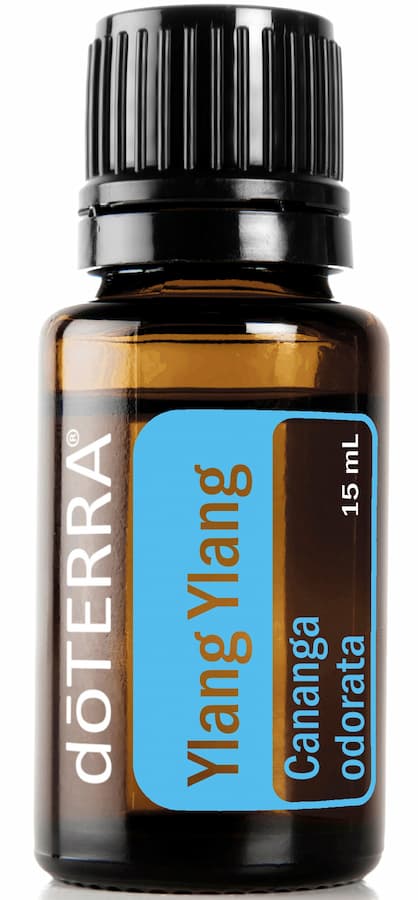
YLANG YLANG ESSENTIAL OIL
In Aromatherapy, Ylang Ylang is used to promote emotional wellbeing. It provides an uplifting aroma while promoting a sense of calmness. It is ideal for diffusing, blending or added to a relaxing bath with Epsom salts.
SUPPORT CATEGORIES: ✅Calming and Grounding ✅Mood Management
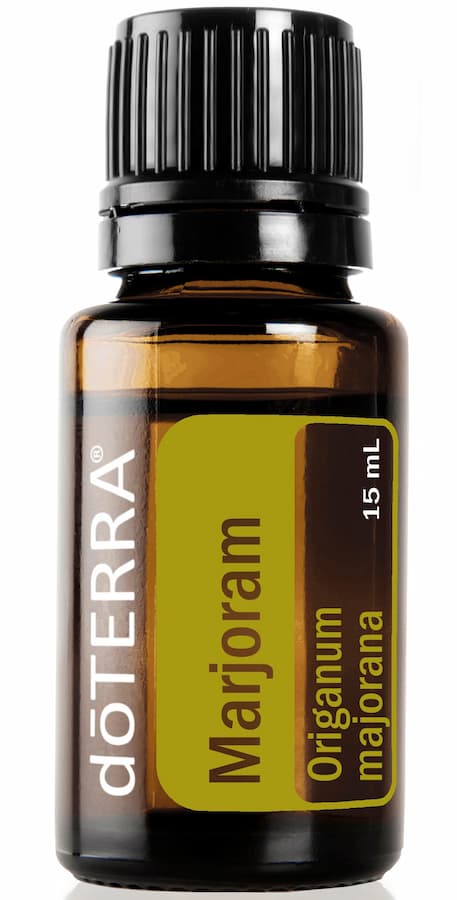
MARJORAM ESSENTIAL OIL
Also known as “wintersweet” or “joy of the mountains”, Marjoram was known to the Greeks and Romans as a symbol of happiness. Apply to the back of the neck to promote feelings of calmness and ease, or to a fussy child’s feet prior to a nap. Diffuse to refresh the air and lift your emotions.
SUPPORT CATEGORIES: ✅Calming and Grounding ✅Mood Management
The Ten Most Supportive Essential Oil Blends
The sophistication and integrity of doTERRA’s proprietary blends make them especially supportive for your neurodiverse home.
The supporting effects of essential oils are magnified by blending multiple oils from each support category together into perfectly balanced essential oil blends.
Here are the top ten doTERRA essential oil blends that perform best in each of the neurodiversity support categories.
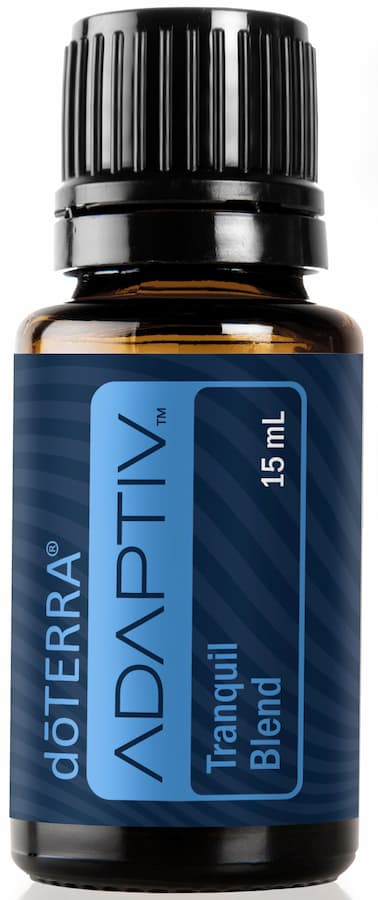
ADAPTIV – TRANQUIL BLEND
dōTERRA’s Adaptiv™ Tranquil Blend is here to support your body, mind and spirit through life’s more stressful moments. As a super support for neurodiversity, it’s calming and relaxing aroma helps boost mood, complements effective work and study, and quells tiredness, restlessness and distractions.
SUPPORT CATEGORIES: ✅Calming and Grounding ✅Rest and Relaxation ✅Mood Management ✅Staying Focussed
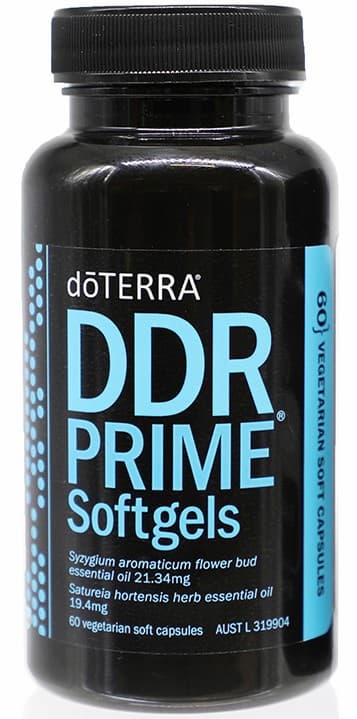
DDR PRIME ESSENTIAL OIL SUPPLEMENT
The oils in this blend provide a myriad of benefits to the entire body. Consequently DDR Prime is extremely useful as an everyday support. It comes in capsule form so adults can take it orally, but break open a capsule, dilute and use topically for children.
SUPPORT CATEGORIES: ✅Calming and Grounding ✅Rest and Relaxation ✅Mood Management ✅Staying Focussed
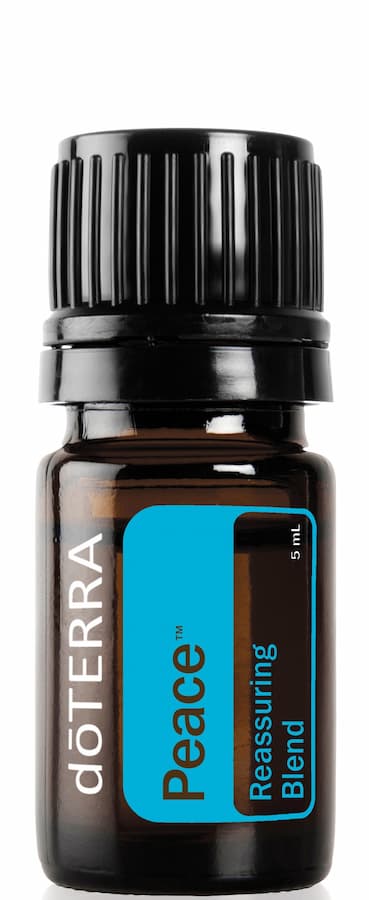
PEACE – REASSURING BLEND
Use dōTERRA Peace Reassuring Blend to promote feelings of contentment, composure, and reassurance when feeling
overwhelmed with emotions. It has a calming scent, and works perfectly massaged into the bottoms of children’s feet during
feelings of restlessness or emotional upset.
SUPPORT CATEGORIES: ✅Calming and Grounding ✅Rest and Relaxation ✅Mood Management
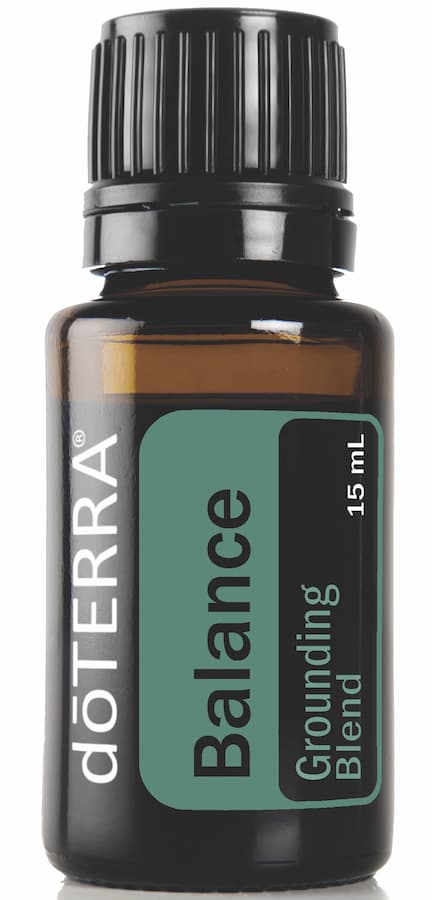
BALANCE – GROUNDING BLEND
doTERRA’s Balance blend promotes a whole body sense of relaxation. It provides a sense of calmness, and evokes feelings of tranquillity and balance. Diffuse to help balance the body and mind. Works best on bottoms of feet and also on neck and wrists.
SUPPORT CATEGORIES: ✅Calming and Grounding ✅Rest and Relaxation ✅Mood Management
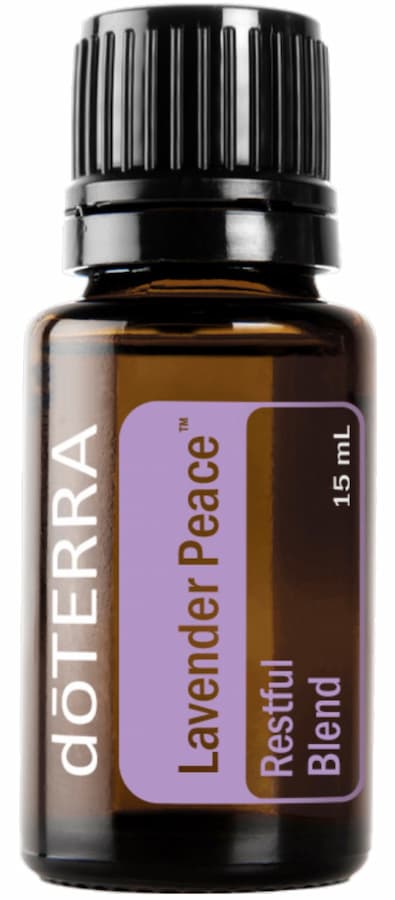
LAVENDER PEACE – RESTFUL BLEND
The dōTERRA Lavender Peace essential oil blend creates a relaxing environment and combines essential oils renowned for their ability to soothe the senses and calm emotions. It is the perfect blend to use before a peaceful nights sleep. Massage into bottoms of feet at bedtime to help unwind before going to sleep.
SUPPORT CATEGORIES: ✅Calming and Grounding ✅Rest and Relaxation ✅Mood Management
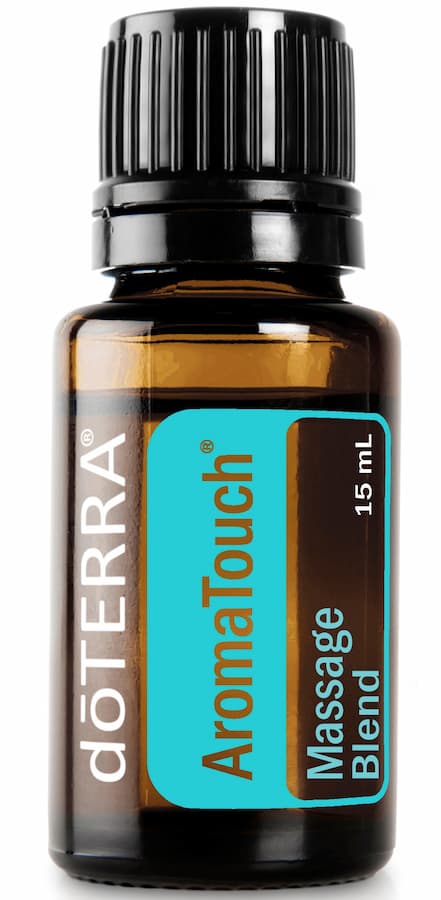
AROMATOUCH – MASSAGE BLEND
This blend combines the unique benefits of oils known to provide relaxing and comforting effects. So much more than merely a massage blend, apply AromaTouch to the neck and shoulders to relax and feel invigorated or add to Epsom salts and enjoy soaking in a hot bath.
SUPPORT CATEGORIES: ✅Rest and Relaxation ✅Mood Management ✅Staying Focussed
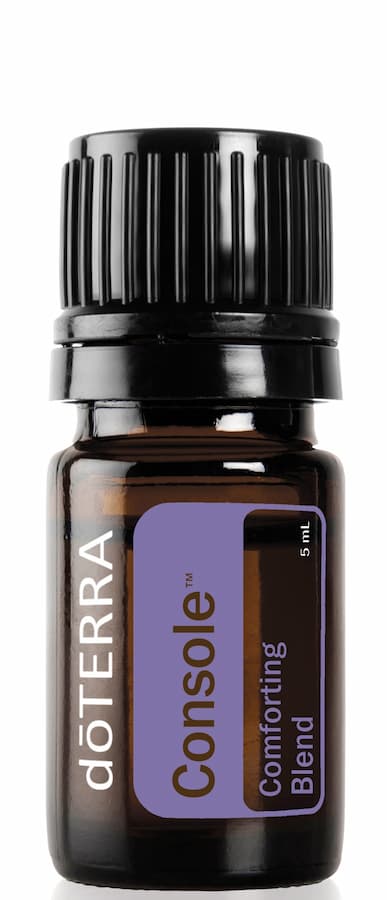
CONSOLE – COMFORTING BLEND
This blend promotes feelings of comfort and hope that may help uplift the emotions. Apply Console when feeling worried, sad, or unsettled to promote feelings of emotional wellbeing. Apply to your shirt
collar and smell throughout the day.
SUPPORT CATEGORIES: ✅Calming and Grounding ✅Mood Management
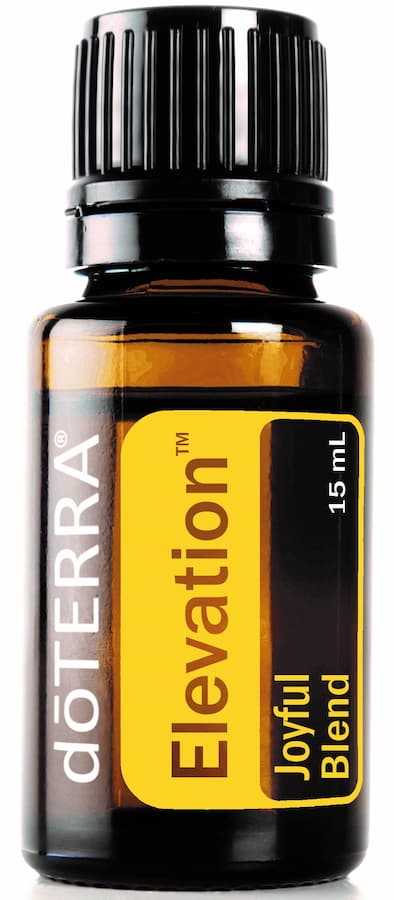
ELEVATION – JOYFUL BLEND
This blend can promote feelings of self-worth while also helping to lessen restless feelings. Diffuse Elevation in the mornings before waking kids to create a positive and
energised environment. After a long, stressful day, add to a bath for a restful, uplifting experience.
SUPPORT CATEGORIES: ✅Calming and Grounding ✅Mood Management
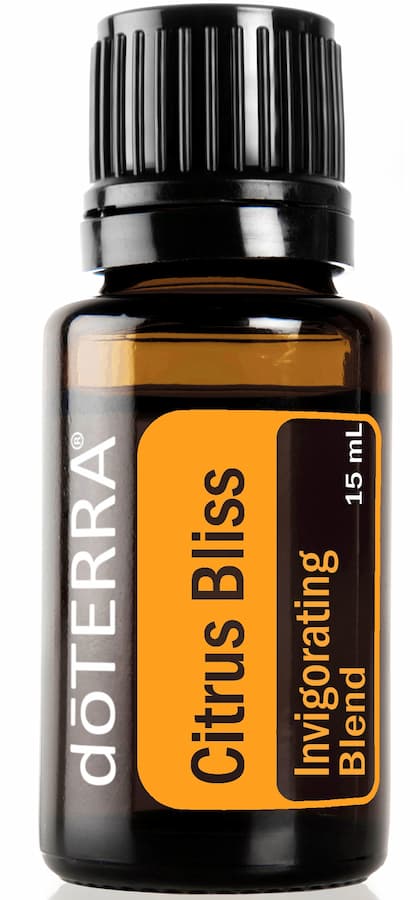
CITRUS BLISS – INVIGORATING BLEND
Citrus Bliss merges the benefits of citrus essential oils. It has an energising and refreshing aroma that helps to promote an uplifted feeling and its invigorating scent can help you maintain focus. Add to a carrier oil for a cheerful hand massage.
SUPPORT CATEGORIES: ✅Mood Management ✅Staying Focussed

INTUNE – FOCUS BLEND
The carefully selected essential oils
in doTERRA’s InTune blend work together, supporting the efforts of those who have difficulty paying attention and staying on task. Use at school or work to stay on task or pep you up when feeling tired in the afternoon. Apply to the back of the neck or bottoms of feet before school.
SUPPORT CATEGORIES: ✅Staying Focussed
CHAPTER FOUR – Easy Places on the Body to Apply Essential Oils to Neurodiverse Children
There is a lot of adamant advice out there about where certain essential oils or blends should be applied, and I often see parents overwhelmed or discouraged when their child’s sensitivities prevent topical application in these areas.
As a parent to a neurodiverse child you are no doubt well aware that your child may be sensitive to touch and smell. These two senses are paramount in the topical use of essential oils.
Please don’t let your child’s sensitivities in these areas dissuade you from giving them a go.
Below I have listed easy places to apply oils to your child along with suggested essential oils to use in these locations.
I want to emphasise that these are suggestions only, and if your child is averse to having essential oils applied in a certain location, then there is no harm in trying a different location.
I have listed multiple suggestions for each essential oil and blend to give you plenty of options.
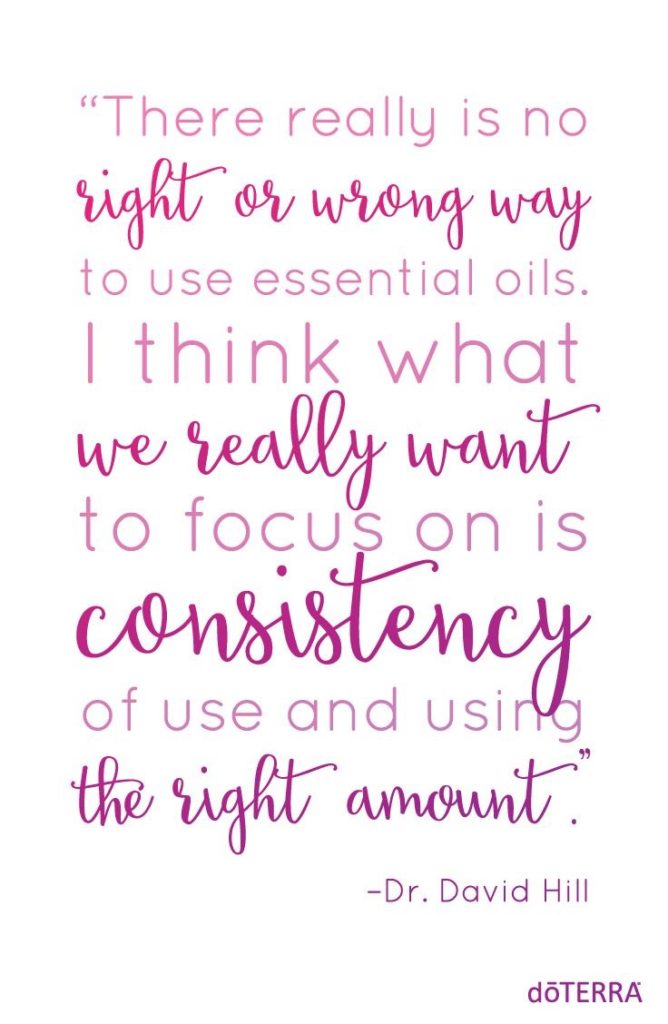
How to Safely Apply Essential Oils
But before we begin, let’s talk safety!
ALWAYS dilute essential oils for children. Dilute further for especially sensitive children if necessary. Here is the dilution guide I use.
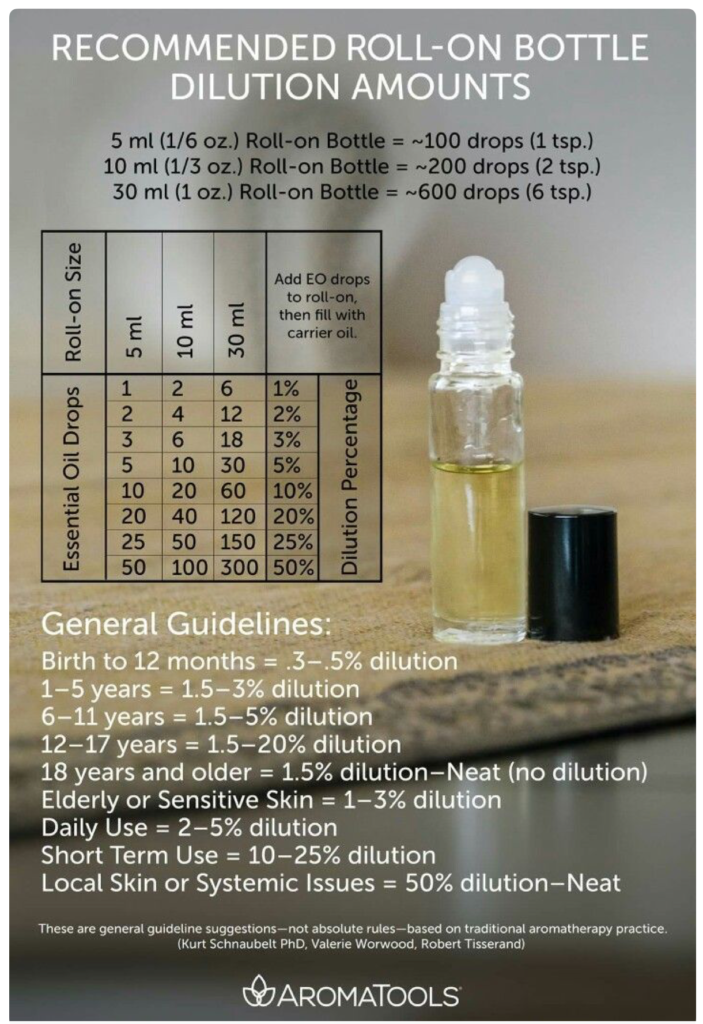
How to Dilute Essential Oils.
Bowl Method: Use a small ceramic or glass bowl. Place 1 teaspoon of carrier oil (e.g Fractionated Coconut Oil) in the bowl. Add the required drops of essential oil as per the dilution chart. Use finger to mix oils and then apply to the selected place on the body. Rub into skin if necessary.
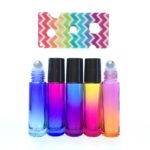
Roller Bottle Method: Remove lid and roller ball insert (if you find this difficult, try using an essential oil bottle key). Add required drops of essential oil as per the dilution chart. Fill remainder of the bottle with a carrier oil (e.g Fractionated Coconut Oil). Replace the roller ball insert (again, an essential oil key may help you here) and lid, then shake well for 30 seconds. To use, remove lid and roll along the skin to apply a layer of oil to the selected place on the body. Rub into skin if necessary.
Photosensitivity
Some essential oils (mainly citrus) increase the skin’s photosensitivity. Avoid exposing places on your body that have absorbed these essential oils to prolonged direct sunlight for up to 12 hours after application. I have marked these essential oils and blends with an ‘*’.
Easy Places to Apply Essential Oils
The following is a list of easy places on the body to apply essential oils as well as suggestions for essential oils to use in these areas. Consider each location and determine if it is a place your child would be open to trying. Trust yourself. No one knows your child like you do.
Forehead
Using the bowl or roller bottle method, apply along the length of the forehead. Be careful not to get any oil into your child’s eyes.
Applying essential oils to your forehead can help ease feelings of tension.
Suggested Essential Oils
Copaiba or Melissa
Suggested doTERRA Essential Oil Blends
- Adaptiv (Tranquil Blend)
- Lavender Peace (Restful Blend)
- AromaTouch* (Massage Blend)
Back of the Neck
Using the bowl or roller bottle method, apply to the back of the neck as well as around under the ears.
Applying essential oils to the back of the neck gives you quick access to the Vegas Nerve. Apply here when you need mental clarity or to relieve tension.
Suggested Essential Oils
Melissa, Vetiver, Neroli, Bergamot*, Marjoram, Ylang Ylang, Cedarwood, Frankincense or Lavender
Suggested doTERRA Essential Oil Blends
- Adaptiv (Tranquil Blend)
- Lavender Peace (Restful Blend)
- Peace (Reassuring Blend)
- AromaTouch* (Massage Blend)
- InTune* (Focus Blend)
- Balance (Grounding Blend)
- DDR Prime* (Cellular Complex Blend)
Down the Spine
Using the bowl or roller bottle method, apply to the spine in a downwards motion. Applying essential oils down the spine allows for quick access to the brain. Apply here when you need mental clarity or for a soothing massage after a long day to promote relaxation.
Suggested Essential Oils
Frankincense, Bergamot*, Vetiver, Copaiba or Lavender
Suggested doTERRA Essential Oil Blends
- AromaTouch* (Massage Blend)
- InTune* (Focus Blend)
- DDR Prime* (Cellular Complex Blend)
- Adaptiv (Tranquil Blend)
Chest or Over the Heart
Using the bowl or roller bottle method, apply to the sternum. Apply essential oils on the chest/over the heart area when dealing with heartache and disappointment and to assist with clear breathing.
Suggested Essential Oils
Melissa, Bergamot*, Copaiba, Neroli or Lavender
Suggested doTERRA Essential Oil Blends
- Elevation* (Joyful Blend)
- Console (Comforting Blend)
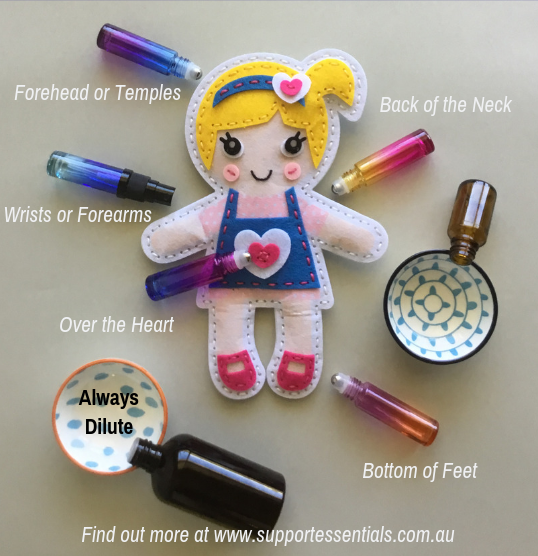
Bottoms of Feet
Using the bowl or roller bottle method, apply to the bottom of each foot. Be sure to include the bottom of each big toe also.
Applying essential oils to the bottom of the feet is particularly useful for children sensitive to smell. You can mask the scent of strong-smelling oils simply by putting on a pair of socks after application. Therefore it is a good place to apply essential oils on children when trying essential oils for the first time. Pores on the bottom of feet are thicker than other pores on the body, allowing essential oils to be absorbed quickly. Most oils can be applied on the bottom of the feet. Also apply citrus oils on bottom of feet, if going in the sun.
Suggested Essential Oils
Lavender, Frankincense, Vetiver, Bergamot*, Marjoram, Cedarwood, Neroli, Ylang Ylang or Copaiba
Suggested doTERRA Essential Oil Blends
- DDR Prime* (Cellular Complex Blend)
- Adaptiv (Tranquil Blend)
- Lavender Peace (Restful Blend)
- Balance (Grounding Blend)
- Peace (Reasurring Blend)
- InTune* (Focus Blend)
Inside Wrist Creases
Using the bowl or roller bottle method, apply to the inside of one wrist, then rub together with the other wrist.
Applying essential oils to the wrists is an easy and accessible location, which also allows for the added benefit of inhaling the essential oils by bringing your wrist up to your nose. Many blood vessels run through the wrists allowing easy access to the heart and lungs. Oils move quickly to the chest, to open the chest and feel lighter. Massage essential oils on wrists to uplift mood and increase focus.
Suggested Essential Oils
Lavender, Neroli, Frankincense or Bergamot*
Suggested doTERRA Essential Oil Blends
- InTune* (Focus Blend)
- Balance (Grounding Blend)
- Elevation* (Joyful Blend)
- Console (Comforting Blend)
- Adaptiv (Tranquil Blend)
Inside Forearms and Crease of Elbow
Using the bowl or roller bottle method, apply to the length of the forearm and to the inside crease of the elbow. There are many veins close to the surface inside the forearm. Applying essential oils up and down the inside of your forearms allows oils to rapidly enter the bloodstream and circulate throughout the body. This is the best location for instant change to your emotional state. Massage essential oils into your arms to promote relaxation.
Suggested Essential Oils
Lavender, Frankincense or Cedarwood
Suggested doTERRA Essential Oil Blends
- Balance (Grounding Blend)
- AromaTouch* (Massage Blend)
The Whole Body
To experience a whole body topical application, add essential oils to your bath water.
As usual dilution is required because essential oils are not water soluble. If you use them neat they will sit on top of the water and may cause skin irritations.
Mix essential oils with a carrier oil, (such as Fractionated Coconut Oil) before adding to the bath, or alternatively you can try them in these essential oil DIY projects for a truly fun essential oil bath experience.
CHAPTER FIVE – How to Purchase Essential Oils + What to Buy
How to buy doTERRA Essential Oils
In the previous chapter I shared with you the top ten doTERRA essential oils and essential oil blends for your neurodiverse home based on the four key essential oil support categories for neurodiversity.
The good news is that as a doTERRA Wellness Advocate and agent, you can purchase those essential oils right here from Support Essentials.
doTERRA essential oils purchased from Support Essentials ship directly from doTERRA to any country where doTERRA operates.
Let’s look at the two ways you can shop for doTERRA Essential Oils.
1. Shop Retail
You can purchase doTERRA essential oils from support Essentials as a retail customer.
- I will direct you via Support Essentials to doTERRA’s secure online store where you can shop, checkout, and have your essential oils delivered straight to your door.
- Create an account or checkout as a guest to make a purchase, but a paid membership is not required.
- You have the option to upgrade your account for membership and access to wholesale pricing at a later date if you so wish.
2. Join & Save
Why not enrol for membership as a doTERRA wholesale customer?
- For a yearly fee you can have a wholesale account for everyday personal use – no strings attached.
- You don’t have to sell doTERRA products to qualify for wholesale prices!
- Your membership also gives you access to doTERRA’s generous Loyalty Rewards Program and other exclusive promotions.
- The initial joining fee is included when you purchase a specially discounted starter pack.
Visit the Support Essentials doTERRA online store and select SHOP from the menu or, if you know you already want to sign up for a wholesale membership, select JOIN AND SAVE.
Choose your language and country to start shopping.
Shopping via the Support Essentials doTERRA online store directly supports Support Essentials. If you buy something through this link, Support Essentials will receive a small commission at no extra cost to you.
What to Buy
doTERRA have an extensive catalogue of products so it can be a little overwhelming choosing the first essential oils for your neurodiverse home.
Rest assured that you can choose your own products to purchase retail or alongside a Wholesale membership, but I bet you want to know how you can get some great discounts.
The options I’ve highlighted below are available to purchase from doTERRA Australia and offer a range of essential oils and blends from the four key essential oil support categories along with the best savings to get you started.
1. doTERRA Starter Packs
doTERRA Starter Packs are a great way to get started using essential oils in your neurodiverse home.
As a bundle, they are cheaper than buying the individual components separately plus they include a one year wholesale membership (that applies at the time of purchase) so the starter pack and any other purchases within the next twelve months will be at wholesale prices.
Of course if you don’t want a wholesale membership and you wish to check out as a guest (without creating an account) you can do so, but you forego the wholesale discount and retail prices will apply.
doTERRA have a wide range of starter packs, but the following are the ones that contain an assortment of essential oil and blends from the ‘top ten’ lists I described in the last chapter.
All prices are in Australian Dollars (AUD)
Emotional Wellness Starter Pack
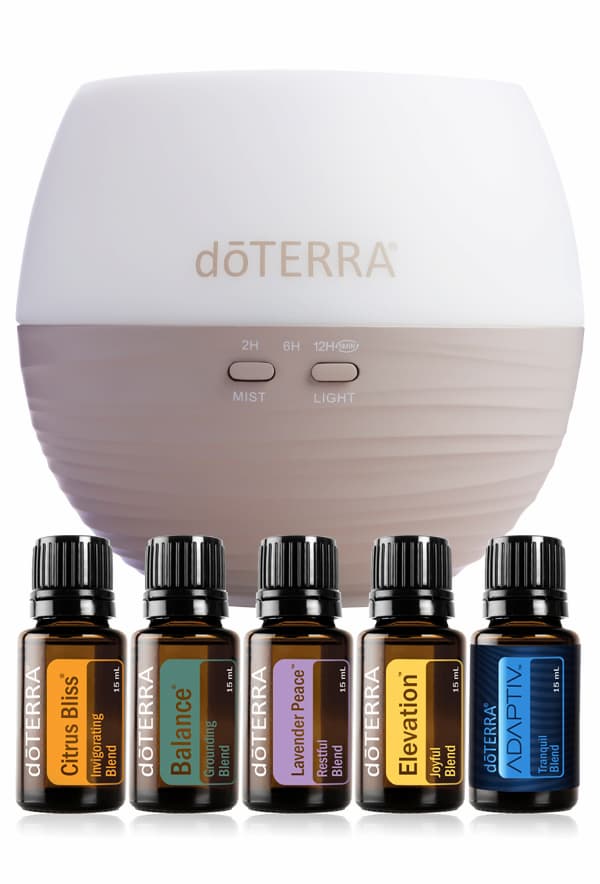
This doTERRA starter pack contains an ultrasonic essential oil diffuser and five of the top ten doTERRA essential oil blends that perform best in the neurodiversity support categories.
With the Emotional Wellness Starter Pack you’ll receive:
- doTERRA Balance® Grounding Blend 15ml
- Citrus Bliss® Invigorating Blend 15ml
- Lavender Peace™ Restful Blend 15ml
- Elevation™ Joyful Blend 15ml
- doTERRA Adaptiv™ Tranquil Blend 15ml
- Petal Diffuser 2.0
- Wholesale Membership
Wholesale Price $226.00 | Retail Price $301.00
Bedtime Bliss Starter Pack
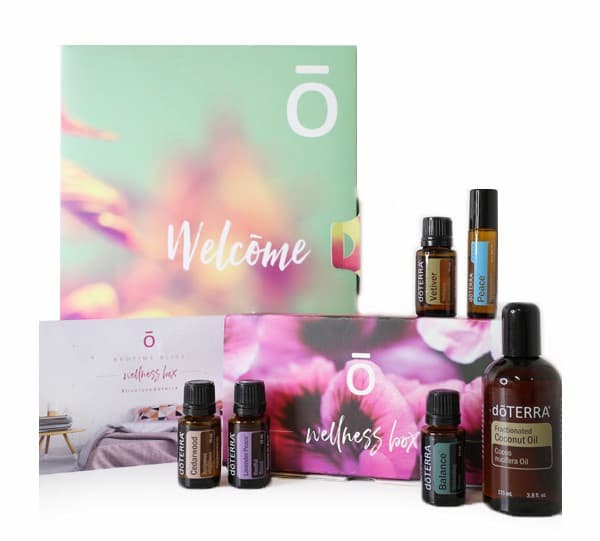
This doTERRA starter pack contains a bottle of Fractionated Coconut Oil and five of the top ten doTERRA essential oils and blends that perform best in the neurodiversity support categories.
With the Bedtime Bliss Starter Pack you’ll receive:
- doTERRA Balance® Grounding Blend 15ml
- Lavender Peace™ Restful Blend 15ml
- Cedarwood Essential Oil 15ml
- Vetiver Essential Oil 15ml
- doTERRA Peace® Touch 10ml
- Fractionated Coconut Oil 115ml
- Wholesale Membership
Wholesale Price $172.00 | Retail Price $229.33
2. doTERRA Kits and Collections
doTERRA kits and collections are similar to starter packs in that they are products bundled together at a special price, however kits/collections do not include a wholesale membership – you will have to purchase that separately if you so wish.
Here are the best doTERRA kits and collections for getting started with essential oils in your neurodiverse home.
Mood Management Kit
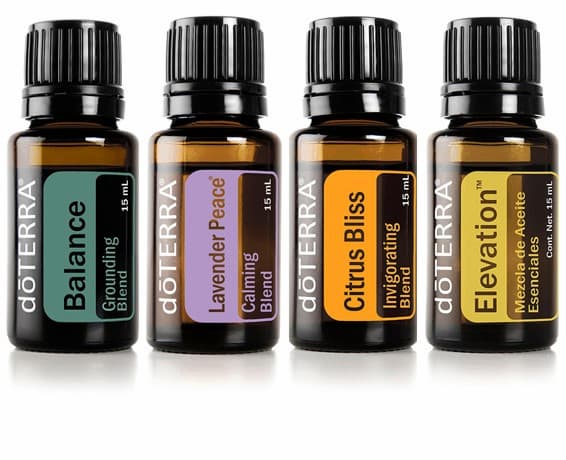
The Mood Management Kit contains 15 mL bottles of essential oil blends including:
- doTERRA Balance® Grounding Blend
- Lavender Peace® Restful Blend
- Citrus Bliss® Invigorating Blend
- Elevation® Joyful Blend
Wholesale Price $124.00 | Retail Price $165.33
Not a member yet? Add a Wholesale Membership for $35.00 at the time of purchase and pay the wholesale price!
Kids Collection
This kit is a specially collated selection of essential oils designed for use with school-age (5+ years) kids.
These oils are all pre-diluted in a base of Fractionated Coconut in a bottle with a roll on applicator ready to use topically.
The set is made up of the following products:
Wholesale Price $140.00 | Retail Price $186.67
Not a member yet? Add a Wholesale Membership for $35.00 at the time of purchase and pay the wholesale price!
Step-by-Step Purchasing Guide
If you are confident that you want to purchase one of doTERRA’s amazing starter packs, then go straight to the Support Essentials doTERRA online store, select JOIN & SAVE from the menu and follow the prompts.
If you want to purchase a kit/collection or choose your own products then read on for the step-by-step instructions for how to navigate the doTERRA online store.
- Go to the Support Essentials doTERRA online store and select SHOP from the menu.
- Select your language and country.
- Select whether you want your order shipped from your local warehouse or from the US warehouse. (This option may or may not appear depending on where you live).
- Browse the doTERRA product catalogue using the menu across the top, or use the search field to find a product.
- Add desired products to your cart.
- Click on ‘Go to Cart’. A pop-up will ask you if you wish to become a doTERRA member.
- To decline membership and pay retail price for your order, click on ‘Checkout as a guest’. (It’s right at the bottom, you may have to scroll down).
- To accept membership and pay wholesale price for your order, click on ‘Start Saving’ under your preferred option (Wholesale Customer or Wellness Advocate (on-seller) account).
- You will be taken to the Starter Pack selection screen. Click on CHOOSE MY OWN PRODUCTS to check out with the products in your cart instead of a Starter Pack. A wholesale membership fee will be added to your cart and the other products in your cart will display wholesale pricing.
- Click on ‘Continue’ to enter your details for your wholesale membership and complete your order.
This is the end of the guide to using essential oils in your neurodiverse home.
Please contact us if you have any questions.





